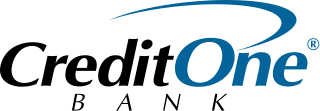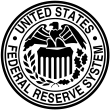
The Federal Deposit Insurance Corporation (FDIC) is a United States government corporation providing deposit insurance to depositors in U.S. commercial banks and savings institutions. The FDIC was created by the 1933 Banking Act, enacted during the Great Depression to restore trust in the American banking system. More than one-third of banks failed in the years before the FDIC's creation, and bank runs were common. The insurance limit was initially US$2,500 per ownership category, and this was increased several times over the years. Since the passage of the Dodd–Frank Wall Street Reform and Consumer Protection Act in 2011, the FDIC insures deposits in member banks up to US$250,000 per ownership category.

Banking in the United States began in the late 1790s along with the country's founding and has developed into highly influential and complex system of banking and financial services. Anchored by New York City and Wall Street, it is centered on various financial services namely private banking, asset management, and deposit security.

Washington Federal is a Washington Corporation headquartered in Seattle, Washington. The Company is a bank holding company that conducts its operations through a federally insured national bank subsidiary, Washington Federal, National Association ("Bank").
The Philadelphia Savings Fund Society (PSFS), originally called the Philadelphia Saving Fund Society, was a savings bank headquartered in Philadelphia, Pennsylvania, United States. PSFS was founded in December 1816, the first savings bank to organize and do business in the United States. The bank would develop as one of the largest savings banks in the United States and became a Philadelphia institution. Generations of Philadelphians first opened accounts as children and became lifelong depositors.
A savings and loan association (S&L), or thrift institution, is a financial institution that specializes in accepting savings, deposits, and making mortgage and other loans. The terms "S&L" or "thrift" are mainly used in the United States; similar institutions in the United Kingdom, Ireland and some Commonwealth countries include building societies and trustee savings banks. They are often mutually held, meaning that the depositors and borrowers are members with voting rights, and have the ability to direct the financial and managerial goals of the organization like the members of a credit union or the policyholders of a mutual insurance company. While it is possible for an S&L to be a joint-stock company, and even publicly traded; in such instances it is no longer truly a mutual association, and depositors and borrowers no longer have membership rights and managerial control. By law, thrifts can have no more than 20 percent of their lending in commercial loans — their focus on mortgage and consumer loans makes them particularly vulnerable to housing downturns such as the deep one the U.S. experienced in 2007.
The savings and loan crisis of the 1980s and 1990s was the failure of 1,043 out of the 3,234 savings and loan associations in the United States from 1986 to 1995: the Federal Savings and Loan Insurance Corporation (FSLIC) closed or otherwise resolved 296 institutions from 1986 to 1989 and the Resolution Trust Corporation (RTC) closed or otherwise resolved 747 institutions from 1989 to 1995.
A state bank is generally a financial institution that is chartered by a state. It differs from a reserve bank in that it does not necessarily control monetary policy, but instead usually offers only retail and commercial services.
An industrial loan company (ILC) or industrial bank is a financial institution in the United States that lends money, and may be owned by non-financial institutions. They provide niche financial services nationwide. ILCs offer FDIC-insured deposits and are subject to FDIC and state regulator oversight. All "FDIC-insured entities are subject to Sections 23A and 23B of the Federal Reserve Act, which limits bank transactions with affiliates, including the non-bank parent company." (FDIC.gov) ILCs are permitted to have branches in multiple states. They are regulated and supervised by state-charters and insured by the Federal Deposit Insurance Corporation. They are authorized to make consumer and commercial loans and accept federally insured deposits. Banks may not accept demand deposits if the bank has total assets greater than $100 million. ILCs are exempted from the Bank Holding Company Act.
Chevy Chase Bank, F.S.B. was the largest locally based banking company in the Washington Metropolitan Area. It was acquired by Capital One in February 2009, and rebranded as Capital One Bank in September 2010. Despite its name, Chevy Chase Bank was a federally chartered thrift regulated by the Office of Thrift Supervision, rather than a bank.

The Financial Institutions Reform, Recovery, and Enforcement Act of 1989 (FIRREA), is a United States federal law enacted in the wake of the savings and loan crisis of the 1980s.
The Federal Savings and Loan Insurance Corporation (FSLIC) was an institution that administered deposit insurance for savings and loan institutions in the United States. The Financial Institutions Reform, Recovery, and Enforcement Act of 1989 (FIRREA) abolished it and transferred the responsibility for savings and loan deposit insurance to the Federal Deposit Insurance Corporation (FDIC). The FSLIC Resolution Fund was created to assume all the assets and liabilities of the FSLIC, which was to be funded by the Financing Corporation (FICO).
The Federal Deposit Insurance Reform Act of 2005, was an act of the United States Congress on banking regulation. It contained a number of changes to the Federal Deposit Insurance Corporation (FDIC).

The Federal Deposit Insurance Corporation Improvement Act of 1991 (FDICIA), passed during the savings and loan crisis in the United States, strengthened the power of the Federal Deposit Insurance Corporation.
First Citizens Bancshares, Incorporated is a bank holding company based in Raleigh, North Carolina that operates First Citizens Bank. First Citizens operates in 18 states and the District of Columbia in the United States, concentrated in the Southeastern United States, Southern California, and Washington.
Southeast Banking Corporation was a bank holding company based in Miami, Florida that owned 2 banks. On Friday, September 19, 1991, during the savings and loan crisis, as a result of bank failure, the bank was shut down by the Office of the Comptroller of the Currency. It was placed into receivership and the Federal Deposit Insurance Corporation (FDIC) was named receiver. Almost all of the assets of the bank were sold to First Union. The bank failure is notable since it is the one of the first instances of the FDIC liquidating a bank using loss sharing provisions.
Corus Bankshares, Inc. operated as the holding company for Corus Bank, N.A., a United States company that offered consumer and corporate banking products and services. The bank's deposit products included checking, savings, money market, and time deposit accounts. Its loan portfolio primarily comprised commercial real estate loans, including condominium construction and condominium conversion loans; commercial loans; and residential real estate loans. The bank focused its lending activities in various metropolitan areas in Florida and California, as well as in Las Vegas, New York City, and Washington, D.C. It also provides safe deposit boxes, as well as clearing, depository, and credit services to check cashing industry locations in the Chicago area and in Milwaukee, Wisconsin. As of December 31, 2006, the bank operated 11 retail banking branches in the Chicago metropolitan area. Corus Bankshares was founded in 1958 and is based in Chicago, Illinois. Corus Bank is also known for having a relatively few number of branches for a publicly traded stock.

Credit One Bank, N.A., simply referred to as Credit One Bank, is a U.S.-based bank specializing in credit cards. It has corporate offices in Las Vegas, Nevada. The bank is held by Credit One Financial, a bank holding company registered in Nevada. Credit One Financial is a wholly owned subsidiary of Sherman Financial Group, LLC. As of 2017, Credit One Bank services more than 7 million cardholders across the United States.
The Certificate of Deposit Account Registry Service (CDARS), is a US for-profit service that breaks up large deposits and places them across a network of more than 3000 banks and savings associations around the United States. This allows depositors to deal with a single bank that participates in CDARS but avoid having funds above the Federal Deposit Insurance Corporation (FDIC) deposit insurance limits in any one bank.
A community bank is a depository institution that is typically locally owned and operated. Community banks tend to focus on the needs of the businesses and families where the bank holds branches and offices. Lending decisions are made by people who understand the local needs of families, businesses and farmers. Employees often reside within the communities they serve.







